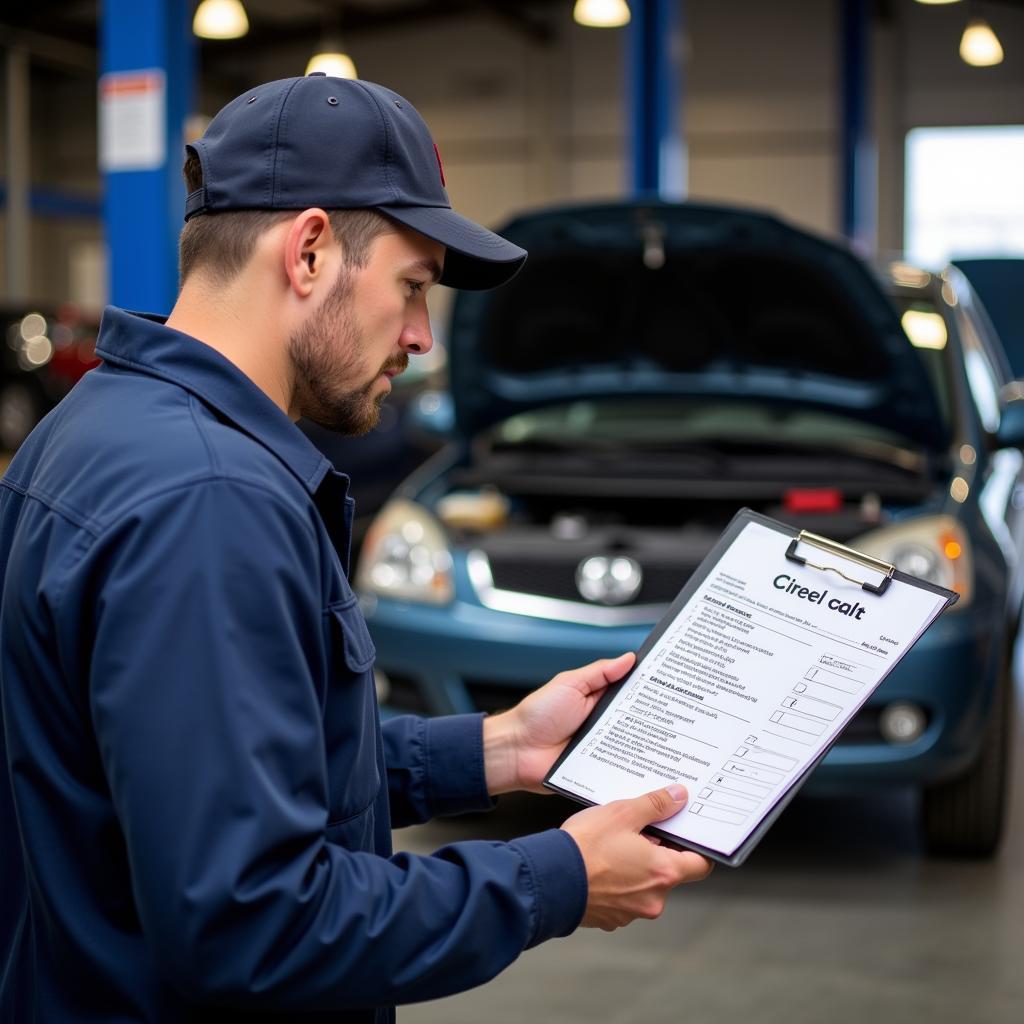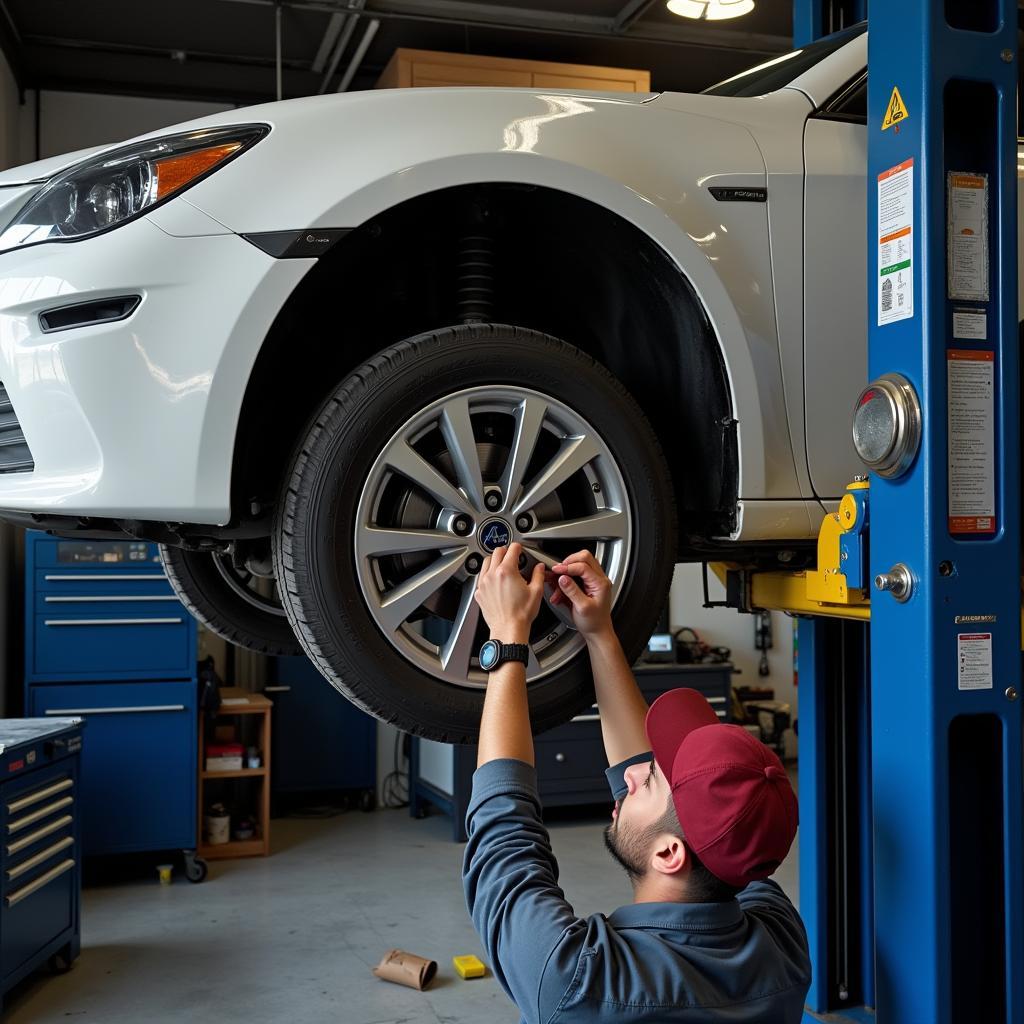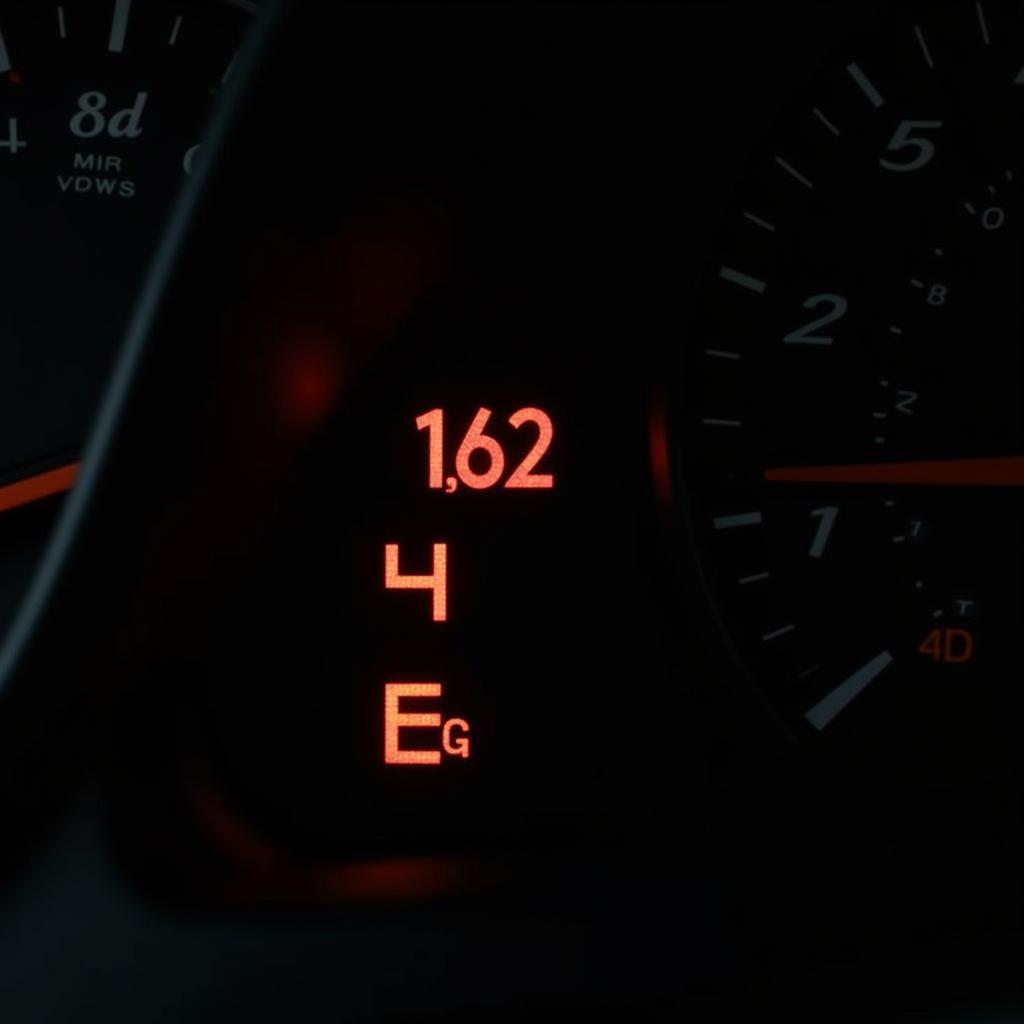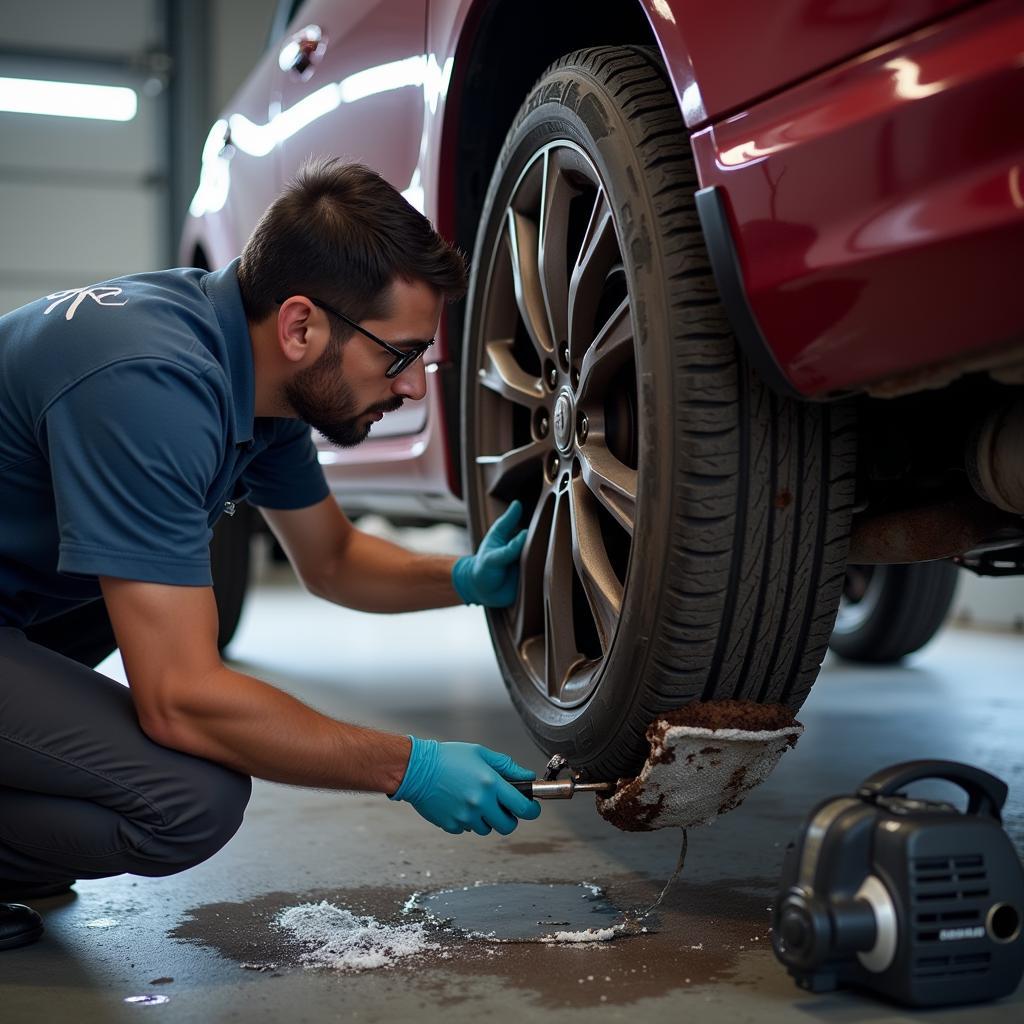What’s Involved in a Car Service?
Knowing what’s involved in a car service can feel like navigating a maze of engine parts and technical jargon. But understanding the process is crucial for keeping your car running smoothly and safely. This guide will demystify car service, explaining everything from basic checks to more comprehensive services.
What Does a Car Service Actually Mean?
Unlike a car repair that addresses a specific issue, a car service focuses on preventative maintenance. Think of it as a health checkup for your vehicle. Regular servicing ensures all components function optimally, extending your car’s lifespan and preventing costly breakdowns.
 Car service checklist
Car service checklist
Types of Car Services: From Basic to Full Service
Car service isn’t one-size-fits-all. There are different levels, each catering to specific mileage and usage needs.
-
Interim Service: This basic service is recommended every 6 months or 6,000 miles, whichever comes first. It includes an oil and filter change, essential fluid top-ups, and a visual inspection of key components like brakes and tires.
-
Full Service: As the name suggests, this is a comprehensive service recommended annually or every 12,000 miles. It covers everything in an Interim Service, plus a more in-depth inspection of the engine, transmission, suspension, and exhaust system.
-
Major Service: This is the most extensive service, typically needed every 24,000 miles or two years. Along with everything covered in a Full Service, it includes replacing key wear-and-tear items like spark plugs, fuel filters, and coolant.
 Car being serviced in a garage
Car being serviced in a garage
Pro Tip from John Miller, Master Mechanic: “Don’t underestimate the importance of regular oil changes. They are the lifeblood of your engine, preventing excessive wear and tear.”
What’s Included in a Typical Car Service?
While the specifics vary depending on the service type and your car model, here are some common checks and replacements:
- Engine Oil & Filter Change: Essential for engine lubrication and performance.
- Fluid Top-Ups: Includes brake fluid, coolant, power steering fluid, and windshield washer fluid.
- Tire Pressure and Tread Depth Check: Ensures optimal tire performance and safety.
- Brake Inspection: Pads, discs, and calipers are checked for wear and tear.
- Suspension Check: Shocks, struts, and springs are inspected for signs of damage or wear.
- Lights Check: Headlights, taillights, brake lights, and indicators are all tested.
- Battery Test: The battery’s voltage and charging capacity are assessed.
what does getting your car serviced include
How Much Does a Car Service Cost?
Several factors influence the cost, including your car’s make and model, service type, location, and chosen mechanic.
- Interim Service: Typically ranges from $100 to $300.
- Full Service: Expect to pay between $200 and $500.
- Major Service: Costs can range from $400 to $800 or more.
how much does a full service cost on a car
Pro Tip from John Miller, Master Mechanic: “Requesting a detailed quote before any work starts is crucial. This transparency ensures you understand what you’re paying for.”
Why Is Regular Car Service Important?
Regular car service offers a multitude of benefits:
- Safety: Ensures your vehicle operates safely, reducing the risk of breakdowns and accidents.
- Reliability: Reduces the likelihood of unexpected breakdowns and costly repairs.
- Performance: Keeps your car running smoothly and efficiently, improving fuel economy.
- Resale Value: A well-maintained car with a complete service history commands a higher resale value.
When Should You Get Your Car Serviced?
Refer to your owner’s manual for specific service intervals recommended by your car manufacturer. Additionally, certain signs indicate your car might need servicing sooner:
- Unusual noises coming from the engine or other components
- Warning lights on the dashboard
- Vibrations or pulling to one side while driving
- Reduced fuel efficiency
- Difficulty starting the engine
 Car dashboard with warning lights illuminated
Car dashboard with warning lights illuminated
Finding a Reputable Car Service Center
Choosing the right service center is crucial for ensuring quality work and fair pricing.
- Dealerships: Offer specialized knowledge of your car model but can be more expensive.
- Independent Garages: Often more affordable and may provide personalized service.
- National Chains: Offer convenience and standardized pricing but may lack personalized attention.
Pro Tip from John Miller, Master Mechanic: “Look for certifications like ASE (Automotive Service Excellence) when choosing a mechanic. These indicate a commitment to quality and professionalism.”
Car Service: A Worthy Investment
Understanding what’s involved in a car service empowers you to make informed decisions about your vehicle’s maintenance. Remember, regular servicing is not just an expense; it’s an investment in your car’s longevity, your safety, and your peace of mind.
Need help with car service? Contact us via WhatsApp: +1(641)206-8880, Email: [email protected]. Our 24/7 customer support team is here to assist you!

